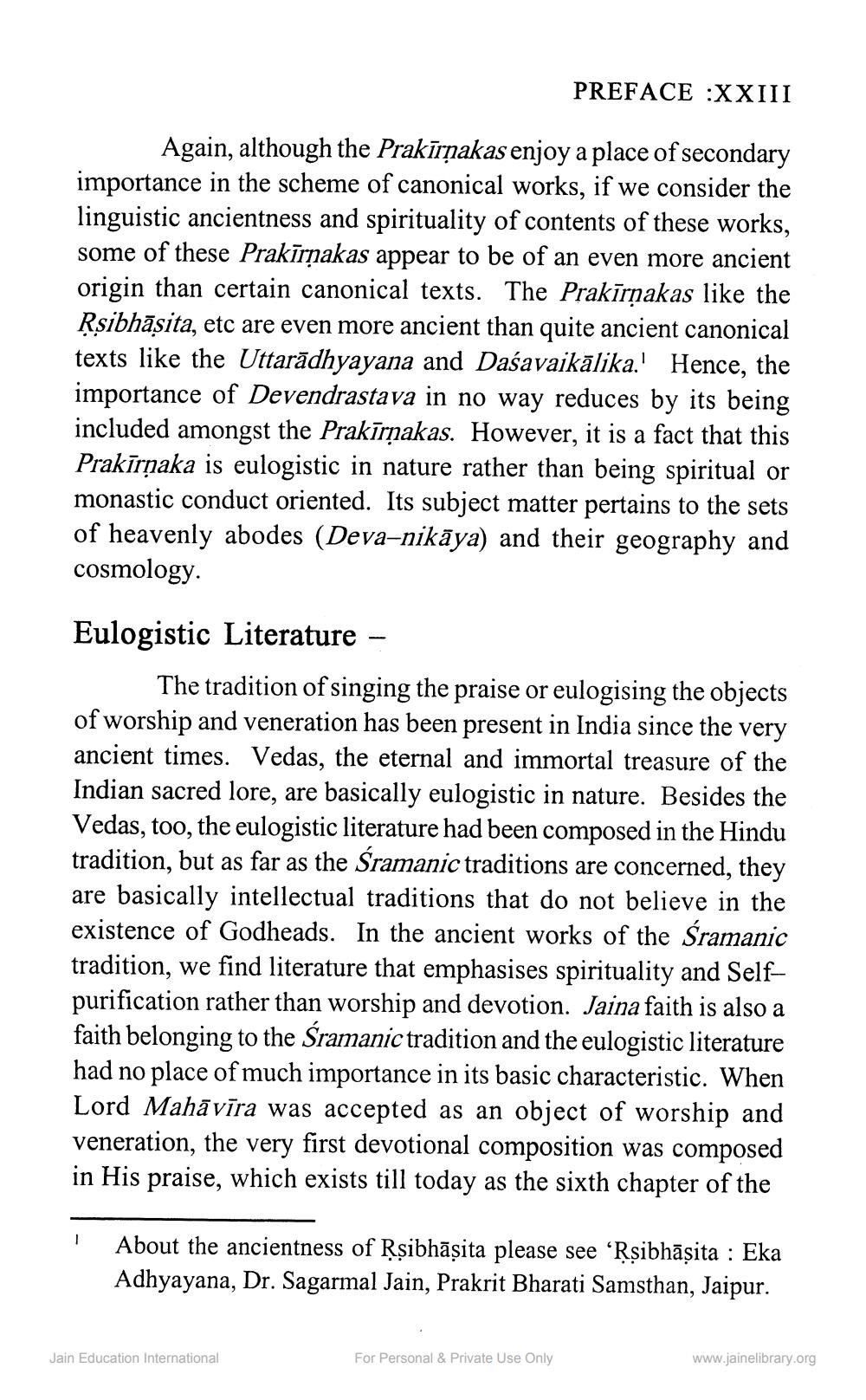________________
PREFACE :XXIII
Again, although the Prakīrņakas enjoy a place of secondary importance in the scheme of canonical works, if we consider the linguistic ancientness and spirituality of contents of these works, some of these Prakīrņakas appear to be of an even more ancient origin than certain canonical texts. The Prakīrņakas like the Rsibhāsita, etc are even more ancient than quite ancient canonical texts like the Uttarādhyayana and Daśavaikālika.' Hence, the importance of Devendrastava in no way reduces by its being included amongst the Prakīrņakas. However, it is a fact that this Prakīrņaka is eulogistic in nature rather than being spiritual or monastic conduct oriented. Its subject matter pertains to the sets of heavenly abodes (Deva-nikāya) and their geography and cosmology.
Eulogistic Literature -
The tradition of singing the praise or eulogising the objects of worship and veneration has been present in India since the very ancient times. Vedas, the eternal and immortal treasure of the Indian sacred lore, are basically eulogistic in nature. Besides the Vedas, too, the eulogistic literature had been composed in the Hindu tradition, but as far as the Sramanic traditions are concerned, they are basically intellectual traditions that do not believe in the existence of Godheads. In the ancient works of the Śramanic tradition, we find literature that emphasises spirituality and Selfpurification rather than worship and devotion. Jaina faith is also a faith belonging to the Śramanic tradition and the eulogistic literature had no place of much importance in its basic characteristic. When Lord Mahāvīra was accepted as an object of worship and veneration, the very first devotional composition was composed in His praise, which exists till today as the sixth chapter of the
About the ancientness of Rşibhāşita please see ‘Rşibhāșita : Eka Adhyayana, Dr. Sagarmal Jain, Prakrit Bharati Samsthan, Jaipur.
Jain Education International
For Personal & Private Use Only
www.jainelibrary.org




